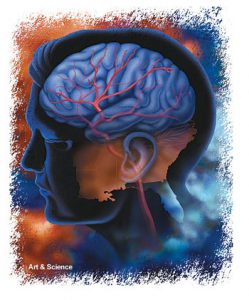Strokes
A stroke is also known as a CVA or cerebrovascular accident. The most interesting thing about the way the  Social Security Administration treats stroke cases is that they tend to hold the case at the prehearing level hoping that the patient will get better. After some time has gone by, the Social Security Administration will then argue that the person is getting better and will probably be able to work in the near future. This is not representative of all stroke cases, but does show their general attitude about stroke cases. With this in mind, attention must be paid to gathering updated medical evidence concerning what functional limitations have come about since the stroke.
Social Security Administration treats stroke cases is that they tend to hold the case at the prehearing level hoping that the patient will get better. After some time has gone by, the Social Security Administration will then argue that the person is getting better and will probably be able to work in the near future. This is not representative of all stroke cases, but does show their general attitude about stroke cases. With this in mind, attention must be paid to gathering updated medical evidence concerning what functional limitations have come about since the stroke.
A strong case before the Social Security Administration is when the stroke victim suffers from limitations on standing and walking. Sometimes after a stroke the person may have problems using one or both arms and there may even be mental problems. These problems that come about after a stroke are called “residuals.” To prove your case to the Social Security Administration, you should have a doctor’s opinion concerning your residuals resulting from the stroke. In addition, hospital records showing you were admitted because or your stroke are very important.
The following symptoms could be associated with having a stroke:
- Personality changes
- Memory loss
- Seizures
- Receptive aphasia
- Expressive aphasia
- Dysarthria
- Ineffective speech or communication
- Alexia
- Apraxia
- Serious disorganization of motor function in two extremities resulting in sustained disturbance of gross and dexterous movements or gait and station that does not go away
- Visual changes
- Hemianopia
What Our Clients Say:
Member:

Attorney Gregory Kornegay
Greg is a trial attorney in Wilmington with over 30 years of experience. Greg was born and raised in southeastern North Carolina. Before law school he managed a store with employees making a payroll every week. His first job out of law school was as an Assistant District Attorney investigating and trying cases for the State of North Carolina. Through the years he has handled many different types of cases – including death penalty cases.
Being married with children has been a blessing and a challenge, but has served him well in understanding the problems individuals and families face as they live out their lives. Greg believes that each case is different and the needs of each client are unique, but there are certain themes of life that we all share.


